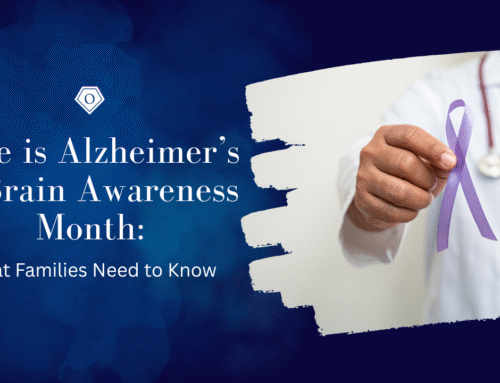Dementia is a progressive condition that affects memory, thinking, and behavior, and as it advances, it brings unique challenges for both the person diagnosed and their caregivers. Individuals may still function independently in the early stages but struggle with memory lapses and decision-making. As the disease progresses to the middle stage, confusion deepens, behaviors become unpredictable, and daily tasks require more hands-on assistance. In the late stage, individuals become entirely dependent on caregivers, requiring full-time support for their most basic needs.
For family caregivers, understanding these stages is crucial for planning ahead and providing compassionate care while ensuring the safety, dignity, and quality of life of their loved one. Beyond daily care, caregivers also play a key role in advocacy—ensuring their loved one receives proper medical care, safeguarding their rights, and making informed decisions on their behalf. This journey can be emotionally and physically demanding, but with the right strategies, support, and resources, caregivers can navigate these challenges more effectively while preserving their loved one’s well-being and comfort.
The following guide breaks down the common challenges of each dementia stage, along with practical solutions and advocacy tips to help you provide the best care possible.
Early Stage Dementia: Recognizing the First Signs & Providing Support
The early stage of dementia can be an emotional rollercoaster for caregivers. You may feel a mix of denial, sadness, and anxiety as you notice the first signs—your loved one forgetting appointments, repeating questions, or struggling with everyday decisions. It’s heartbreaking to see someone you love begin to slip into confusion, and the uncertainty of what’s ahead can feel overwhelming. At this stage, you might still be trying to convince yourself (and others) that everything is fine. However, deep down, you’re likely experiencing worry and the beginning of caregiver stress, especially as you step into a more active role in their life. This is also when many caregivers feel isolated because friends and family may not fully understand the changes happening.
Challenges:
- Memory Lapses & Confusion – Forgetting names, appointments, and misplacing items.
- Difficulty with Complex Tasks – Managing finances, cooking, or organizing becomes overwhelming.
- Emotional Reactions – Anxiety, frustration, or depression as they recognize their memory changes.
Solutions:
- Encourage Independence – Use reminders, calendars, and labeled drawers to help them stay organized.
- Simplify Decision-Making – Offer limited choices to reduce stress (e.g., “Would you like tea or coffee?”).
- Open Communication – Talk about their diagnosis honestly and encourage social activities to keep them engaged.
Advocacy Tips:
- Help with Legal & Financial Planning – Ensure power of attorney, advance directives, and financial plans are in place while they can still make decisions.
- Encourage Early Treatment & Lifestyle Changes – Brain exercises, physical activity, and a healthy diet can slow progression.
- Educate Others – Help family and friends understand what’s happening and how they can support your loved one.
Middle Stage Dementia: Managing Increasing Dependency
This stage is where caregiving becomes more physically and emotionally demanding. You might feel frustration, exhaustion, and even guilt as your loved one’s confusion worsens. They may no longer recognize you at times, repeat themselves endlessly, or even become aggressive. It’s painful to witness, and you might feel like you’re constantly on edge, waiting for the next crisis. There’s also the stress of balancing your own life—work, family, and personal health—while taking on more caregiving responsibilities. At this point, many caregivers feel drained and struggle with asking for help, even when they desperately need it.
Challenges:
- Increased Forgetfulness & Confusion – Forgetting family members, getting lost, or repeating questions.
- Behavioral Changes – Agitation, aggression, paranoia, or hallucinations.
- Wandering & Safety Risks – Leaving home or forgetting how to return.
- Difficulty with Daily Tasks – Struggles with dressing, bathing, or eating.
Solutions:
- Create a Safe Environment – Remove hazards, install locks, and use tracking devices to prevent wandering.
- Use Redirection & Validation – Instead of arguing, gently steer conversations in a positive direction or validate their emotions.
- Maintain a Routine – A consistent daily schedule can reduce anxiety and confusion.
- Seek Help from Professional Caregivers – Consider in-home care for additional support.
Advocacy Tips:
- Monitor Their Healthcare Needs – Attend doctor’s appointments, manage medications, and watch for other health issues.
- Ensure Social Engagement – Look for dementia-friendly activities to keep them connected and reduce isolation.
- Prepare for the Next Stage – Start considering long-term care options, if needed, before a crisis occurs.
Late Stage Dementia: Providing Comfort & Preserving Dignity
This is often the most emotionally painful stage for caregivers. Watching your loved one become entirely dependent, unable to communicate, and possibly unaware of your presence can feel devastating. Feelings of grief, even before their passing, are common. At the same time, you may feel completely exhausted from the constant care they require—bathing, feeding, and repositioning them to prevent bedsores. Some caregivers experience guilt over considering hospice or professional care, while others struggle with the decision of when to let go. There is also a deep sense of loneliness, as the person you love is no longer the same, even though they are still physically there.
Challenges:
- Loss of Communication – Difficulty speaking, recognizing loved ones, or expressing needs.
- Severe Mobility Issues – Increased risk of falls and difficulty swallowing.
- Total Dependence – Requires help with all daily activities, including eating, dressing, and hygiene.
Solutions:
- Use Nonverbal Communication – Gentle touch, facial expressions, and a soothing voice can provide comfort.
- Adapt Feeding Techniques – Offer soft foods, use special utensils, and be patient during meals.
- Focus on Comfort & Quality of Life – Soft bedding, favorite music, and gentle massage can improve well-being.
Advocacy Tips:
- Ensure Proper Pain Management – Work with doctors to assess pain levels, especially if they can’t express discomfort.
- Consider Hospice or Palliative Care – Focus on comfort and dignity in the final stages.
- Honor Their Wishes – Follow their advance directives or expressed desires about end-of-life care.
Final Thoughts: You Are Their Voice
As dementia progresses, your role as an advocate becomes even more critical. Ensuring your loved one receives compassionate care, dignity, and respect at every stage is one of the most meaningful ways to support them. Remember, you’re not alone—reach out to support groups, home health agencies, and professionals to help navigate this journey.
Dementia & Alzheimer’s Care
Onyx Home Care’s neurological disorder care is built around a system of support. This service includes skilled home care as well as a unique program that centers on the patient’s interests and stage of illness. Our goal is to see happy family members, patients and caregivers. Often times, caregivers feel remote. Our team includes each person in the home care process to provide inclusive care that helps the patient thrive.






